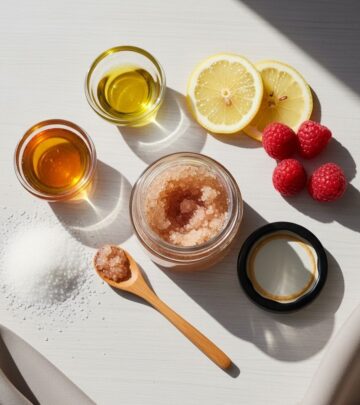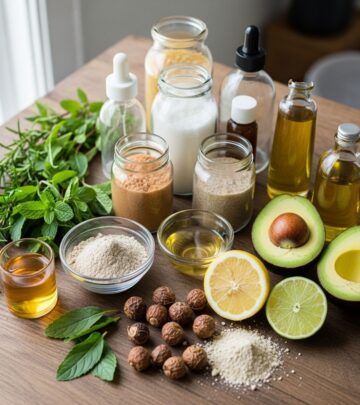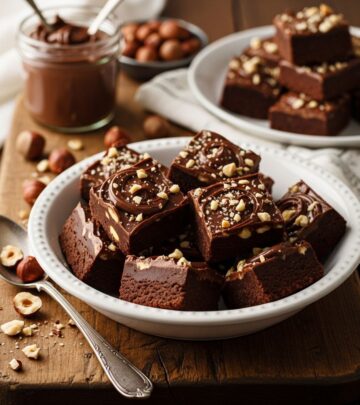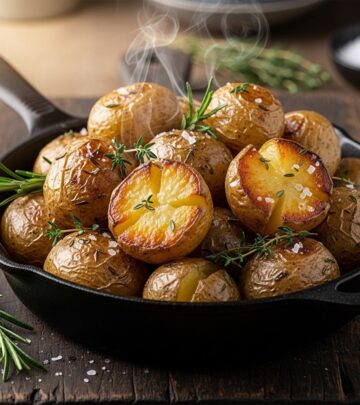Hard Boiled Eggs In Oven: 6 Easy Steps For Perfect Results
Discover the ultimate guide to making perfectly hard-boiled eggs in the oven, with tips, tricks, and troubleshooting for delicious results every time.
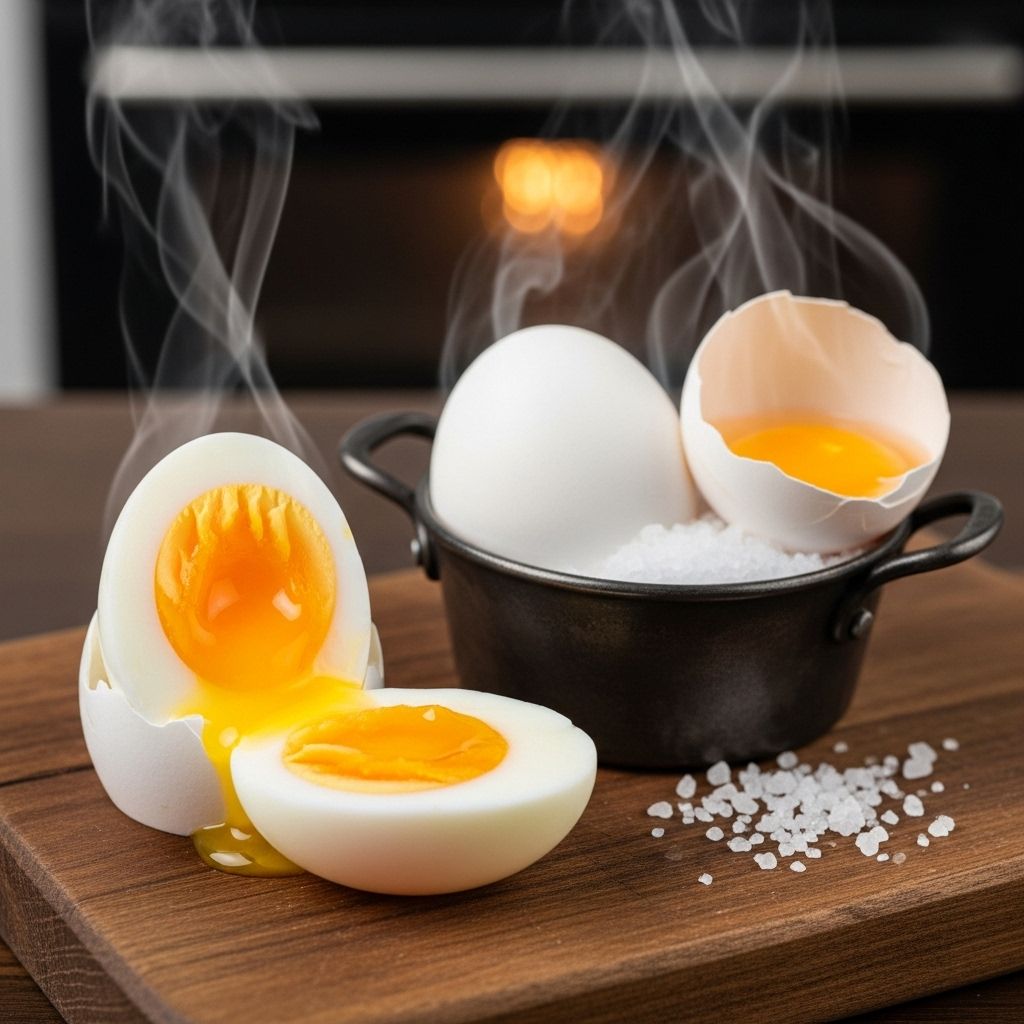
Image: HearthJunction Design Team
How to Make Hard-Boiled Eggs in the Oven
If you love the convenience and versatility of hard-boiled eggs but dread the hassle of boiling water, this guide will show you an easy alternative: making hard-boiled eggs in the oven. Baking eggs transforms the process, allowing you to cook large batches without worrying about water boiling over or dealing with sticky shells. Whether you’re meal prepping for the week, preparing for a picnic, or just want an easy source of protein, this oven-baked method delivers consistently great results.
Why Bake Eggs Instead of Boil?
Using the oven to hard-cook eggs offers several practical advantages:
- Batch Cooking: Bake dozens at once—perfect for parties or meal prep.
- No Boiling Required: Skip waiting for pots of water to boil or worrying about timing the simmer.
- Hands-Free: The oven does the work for you, freeing up your stovetop and your attention for other tasks.
- Consistent Results: Oven heat ensures even cooking for all eggs.
Ingredients & Equipment
Baking hard-boiled eggs requires minimal ingredients and equipment. Here’s what you’ll need:
- Large eggs (as many as desired)
- Muffin tin (standard or mini; helps keep eggs from rolling around and promotes even heating)
- Ice bath (a large bowl of ice water for cooling and easy peeling)
- Oven mitts
Step-by-Step Instructions: Oven-Baked Hard-Boiled Eggs
Follow these steps to achieve perfect hard-boiled eggs every time using your oven:
1. Preheat the Oven
Set your oven to 325°F (165°C). Some ovens may run hot or cool, so if you know yours tends to be off, consider using an oven thermometer for accuracy.
2. Arrange Eggs in Muffin Tin
Place one egg in each cup of a muffin tin. The tin prevents the eggs from rolling and helps distribute heat evenly. You can use a standard 12-cup tin or a mini-muffin pan for more eggs at once.
3. Bake the Eggs
Transfer the muffin tin with eggs to the oven. Bake for 30 minutes for hard-boiled results. For medium-cooked eggs with slightly softer centers, reduce time to around 25 minutes.
4. Prepare an Ice Bath
While the eggs are baking, fill a large bowl with ice and water. This ice bath stops the cooking process immediately, preventing green yolks and making eggs easier to peel.
5. Cool and Peel
Once baking is complete, use oven mitts to carefully remove the muffin tin from the oven. Using tongs or a spoon, transfer the eggs immediately to the ice bath. Let them chill for 10 minutes before peeling or storing.
6. Peel and Enjoy
Crack the shell gently on a hard surface and peel under running water for the easiest removal. Serve immediately or refrigerate for later use.
Table: Oven-Baked Egg Cooking Times
| Egg Texture | Oven Temperature | Bake Time |
|---|---|---|
| Soft-Boiled | 325°F / 165°C | 20-22 minutes |
| Medium-Boiled | 325°F / 165°C | 24-26 minutes |
| Hard-Boiled | 325°F / 165°C | 28-30 minutes |
Tips for the Best Oven-Baked Eggs
- Use Room Temperature Eggs: They’re less likely to crack from a sudden temperature change.
- Test with a Few First: Ovens vary—do a small batch to calibrate the perfect time for your oven.
- Water Stains: Tiny brown spots or pinpricks on shells are normal due to oven’s dry heat. Simply wipe or rinse before peeling.
- Avoid Overcooking: Baking too long can cause a green ring to form around the yolk. Stick to the recommended time.
- Add Salt or Vinegar (Optional): If you notice shells are hard to peel, you can add a splash of vinegar or salt to the ice bath, though the oven method is usually easy to peel as-is.
Storage and Make-Ahead Tips
- Refrigerate Immediately: Store peeled or unpeeled eggs in a covered container in the refrigerator. Use within one week for best freshness.
- Label and Date: If prepping ahead, mark the container with the date cooked.
- Peel Just Before Serving: Eggs kept in their shells stay fresher longer and are less likely to absorb fridge odors.
Troubleshooting Oven-Baked Eggs
- Brown Spots on Shells: This is harmless and caused by hot spots in the oven. Peel as usual—egg inside is fine.
- Difficult Peeling: Use the ice bath and peel under water. Older eggs peel more easily than fresh-from-the-chicken eggs.
- Cracked Shells: Start with room temperature eggs and avoid crowding the muffin tin.
- Undercooked/Overcooked Centers: Adjust bake time in 2-3 minute increments based on your oven’s performance and egg size.
Serving Suggestions
- Breakfast: Slice and add to toast, bagels, or breakfast sandwiches.
- Salads: Top green salads, grain bowls, or Nicoise salad with sliced hard-boiled eggs.
- Snacks: Enjoy as a protein-packed snack, seasoned with salt, pepper, or your favorite spices.
- Deviled Eggs: Oven-baked eggs work perfectly for deviled eggs or egg salad.
Comparison: Oven-Baked Eggs vs. Traditional Boiled Eggs
| Method | Pros | Cons |
|---|---|---|
| Oven-Baked | Batch cooking, no boiling hassle, hands-off, even cooking | Potential for brown spots, requires oven access and muffin tin |
| Boiled | Faster for small batches, no special equipment needed | Can be finicky to peel, risk of over/under-cooking, needs supervision |
Frequently Asked Questions (FAQs)
Can I use any type of egg for baking?
Yes! Brown or white eggs, farm-fresh or store-bought, all work well with this oven method. Fresher eggs might be tougher to peel but chilling in an ice bath helps.
Do I need to add water to the muffin tin?
No, you don’t need water. The dry heat of the oven cooks the eggs in their shells.
Will the eggs taste different than boiled eggs?
The taste and texture are almost identical to traditionally boiled eggs, though some people notice baked eggs are slightly creamier.
What if I don’t have a muffin tin?
You can lay eggs directly on the oven rack, but use caution—they may roll. Placing them on a damp towel on a baking sheet can help stabilize them.
Is it safe to eat eggs with brown spots on the shell?
Yes, the discoloration is purely cosmetic and disappears when peeled. The eggs are completely safe to eat.
How long do oven-baked eggs last?
Refrigerated hard-boiled eggs in the shell last up to one week. Peeled eggs should be eaten within a few days for best taste and texture.
Pro Tips for Perfect Results
- Use eggs that are at least a week old for easier peeling.
- Try flavoring your eggs post-peel with fresh herbs, smoked paprika, or hot sauce.
- For soft or jammy eggs, check at 20-25 minutes. For hard yolks, stick to 28-30 minutes.
Conclusion
Baking hard-boiled eggs in the oven is a game-changer for anyone who loves the simplicity and utility of this nutritious staple. With no pots of water to manage and the ability to cook a dozen or more eggs at once, the oven method is perfect for busy mornings, meal prepping, or preparing for a crowd. With just a muffin tin and your oven, you can enjoy perfectly cooked, easy-to-peel eggs every time.
Related Recipes and Uses
- Deviled eggs with creative fillings
- Egg salad sandwiches
- Salads and grain bowls with sliced eggs
- Pickled eggs for a tangy snack
Still Have Questions?
Leave your egg-cooking questions below or explore more kitchen-tested techniques and tips for getting the most out of your eggs, whether baking, boiling, or beyond!
References
- https://www.allrecipes.com/recipe/235595/how-to-make-perfect-hard-boiled-eggs/
- https://www.allrecipes.com/article/how-to-boil-an-egg/
- https://www.allrecipes.com/recipe/273133/perfect-hard-boiled-eggs/
- https://www.allrecipes.com/recipe/236441/hard-boiled-egg-casserole/
- https://www.allrecipes.com/recipe/213737/kens-perfect-hard-boiled-egg-and-i-mean-perfect/
Read full bio of Anjali Sayee


